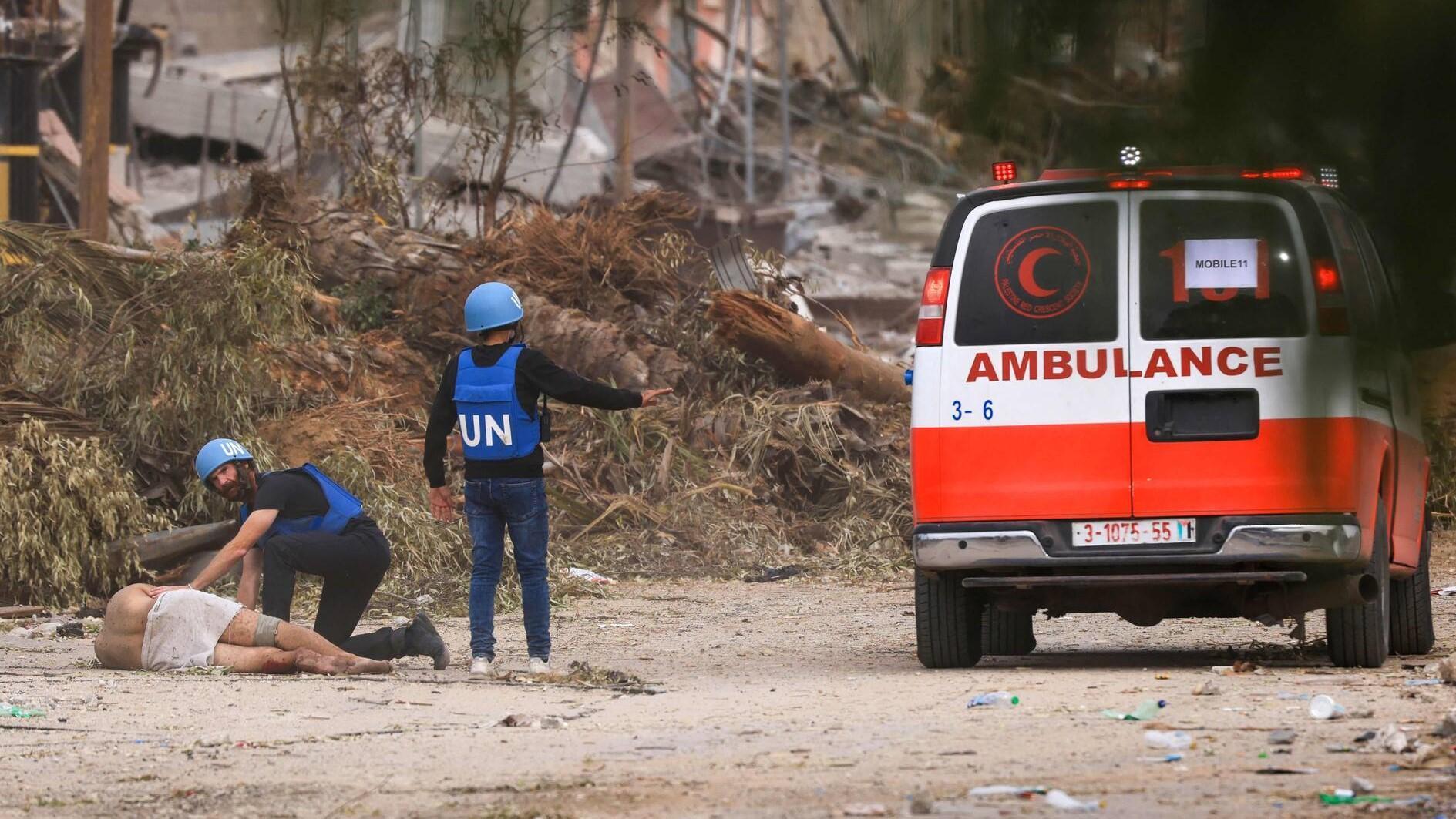Israel bombs Gaza after warning Hamas nears 'dissolution'
JERUSALEM

Israel pressed on with its bombing of Gaza on Tuesday after saying its campaign to destroy Hamas has left the Palestinian militant group on the "the verge of dissolution".
Humanitarian leaders fear the besieged territory will soon be overwhelmed by disease and starvation, and are piling diplomatic pressure on Israel to boost efforts to protect civilians.
Fierce fighting raged on Tuesday, with Hamas saying clashes had taken place in central Gaza and witnesses reporting deadly Israeli strikes in the south of the territory.
Strikes on Monday targeted Gaza's main southern city of Khan Yunis, now the epicentre of the fighting, as well as Rafah, a city on the border with Egypt where tens of thousands of people are seeking shelter.
"Hamas is on the verge of dissolution — the IDF is taking over its last strongholds," Israeli Defence Minister Yoav Gallant said late Monday.
The war began with Hamas's October 7 attacks that killed 1,200 people, according to Israeli figures, and saw around 240 hostages taken back to Gaza.
Israel has responded with a military offensive that has reduced much of Gaza to rubble and killed at least 18,200 people, mostly women and children, according to the Hamas-run health ministry.
Israel's army chief Herzi Halevi visited the centre of Khan Yunis on Monday, where he said his forces were "securing our accomplishments in the northern part of the Gaza Strip, the entrance in the southern part of the Strip, and also deep down into the ground".
The U.N. estimates 1.9 million of the territory's 2.4 million people have been displaced by the war, half of them children.
Fighting and heavy bombardment in the south, where Israel had previously urged civilians to seek safety, have left people with few places to go.
Umm Mohammed al-Jabri lost seven children in an air strike on Rafah after fleeing there from Gaza City further north.
"I have four children left," said Jabri, 56. "Last night they bombed the house we were in and destroyed it. They said Rafah would be a safe place. There is no safe place."
Basic supplies run out
Civilians in Gaza are facing a catastrophic situation, the EU's top diplomat Josep Borrell said Monday, comparing the territory's destruction to that of Germany during World War II.
Health services have been devastated, with only 14 of Gaza's 36 hospitals functioning at any capacity, according to U.N. humanitarian agency OCHA.
In central Gaza, Al-Aqsa hospital was inundated with victims Monday, including dozens of screaming children, after Israeli strikes on the Al-Maghazi refugee camp.
As basic supplies run out and sanitary conditions deteriorate, women and girls in Rafah said they had been forced to use scraps of cloth for menstrual periods.
"I cut up my kid's clothes or any piece of cloth I find," said 25-year-old Hala Ataya.
In Gaza City's Al-Rimal neighbourhood, thousands of Palestinians set up camp at a UN agency headquarters after nearby homes and shops were destroyed by Israeli strikes.
An AFP correspondent said both the Islamic and adjacent Al-Azhar universities had been reduced to rubble, as had the police station.
"There is no water. There is no electricity, no bread, no milk for the children, and no diapers," said Rami al-Dahduh, 23, a tailor.
International aid organisations have struggled to get supplies to desperate Gazans under Israeli bombardment, with only the Rafah crossing in Egypt open.
Facing growing pressure to do more for civilians, Israel announced Monday it would be screening aid to Gaza at two additional checkpoints, which would allow more assistance to enter the ravaged territory.
No new direct crossings will be opened, Israel said, but the Nitzana and Kerem Shalom crossings will be used to carry out checks before sending the trucks through Rafah.
















